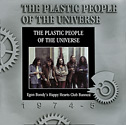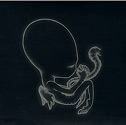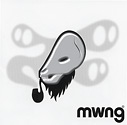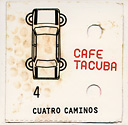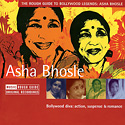Let’s cut right to the chase: Everybody hates world music. Even David Byrne. (The Talking Heads frontman, who’s perhaps most responsible for expanding the genre’s audience via his Luaka Bop label, once penned a somewhat apologetic editorial for the New York Times saying as much.) Nothing conjures pretentious, self-satisfied yuppiedom quite as vividly as world music, but for whatever reason, foreign-language albums are invariably tarred with its brush. Here are six discs whose charms can’t be held down by a language barrier.
FRANCOISE HARDY La Question (Virgin/Sonopresse)
By the time the model-gorgeous Françoise Hardy released her seventh album in 1971, she’d been feted by Bob Dylan (via the poem on the cover of 1964’s Another Side Of Bob Dylan) and was a bona fide French cultural icon. She’d also ceased touring and was ready to enter a new phase of her career. Less dependent on the lushly orchestrated, emotionally theatrical music of her youth, she tilted instead toward candlelight romanticism. La Question is Hardy’s post-’60s high water mark, a surprisingly complex babymaker symphony of lights-down-low lullabies. Her sexy purr of a voice is accompanied only by nylon-stringed guitar, swooning strings and jazz-informed double bass. From the very first word of the album’s opening song (“viens,” a whispery come-on meaning, literally, “come”) to tracks such as the creepy, stalker-like “Le Martien” and her self-penned double-entendre-fest “Doigts” (“Fingers”), Hardy leads listeners down a purely seductive path.
THE PLASTIC PEOPLE OF THE UNIVERSE Egon Bondy’s Happy Hearts Club Banned (Globus)
From the Prague Spring of 1968 until the so-called Velvet Revolution of 1989 that marked the end of Soviet rule in Czechoslovakia, the Plastic People Of The Universe were more an underground secret society than a band. The Czech collective held surreptitious concerts that were routinely raided by authorities, recorded its music illegally and ultimately paid the price when several members were sent to prison. Egon Bondy’s Happy Hearts Club Banned was recorded in 1974-’75 as a series of demos never intended for mass distribution. The LP was finally released in 1977 after copies were smuggled out of Czechoslovakia and favorably reviewed in the U.S. and U.K., and its raw, primitive sound and dissonant art rock recalls Captain Beefheart, Henry Cow, the Velvet Underground and Frank Zappa. The 17-track album features Czech-only lyrics written by dissident poet Egon Bondy, betraying a mile-wide anti-authoritarian streak. The songs confront adventurous sensibilities with odd meters, free-jazz saxophones, spacey, atonal violin scraping and the sort of beauty through repetition long favored by Lou Reed. Happy Hearts Club Banned makes Trout Mask Replica sound like Hannah Montana, and it provided a repressed society with what the Czech government labeled “extreme vulgarity with anti-social impact extolling nihilism and decadence.” In other words, rock ’n’ roll.
SIGUR ROS Agaetis Byrjun (PIAS America/Fat Cat)
What kind of language, exactly, is Hopelandic? For Icelandic quartet Sigur Rós, it’s the imaginary scat-sung dialect in which frontman Jónsi Birgisson renders much of the group’s material. Birgisson’s helium-injected falsetto often sounds like arctic-blue angels from on high or vigorously processed/sampled keyboards, and it’s mixed to seem as though it’s just one of the chorus of otherworldly voices that give Sigur Rós’ 1999 sophomore album its spacious, hanging-from-heaven’s-rooftop quality. Agaetis Byrjun‘s “Sven-G-Englar” served as a centerpiece of the Vanilla Sky soundtrack; the composition’s pinging-sonar motif sounds as though the group recorded it in an aquarium, playing underwater lullabies to a small gathering of stunned humans up above. But “Olsen Olsen” is Agaetis Byrjun’s true contribution to the Hopelandic canon, its nonsense lyrics communicating more emotion than anything Sigur Rós could’ve spelled out in Icelandic. The album’s mixture of cello-bowed guitar, sugar-frosted strings and heavenly human choruses would have a huge impact on tourmates Radiohead, whose ice-age anti-statement Kid A remains indebted to this mini-masterpiece.
SUPER FURRY ANIMALS Mwng (Flydaddy)
In 1999, Wales’ premier psych/pop rangers had released their final album for Alan McGee’s storied Creation label (the terrific Guerilla) and had not yet signed to Epic. To Super Furry Animals frontman Gruff Rhys and his fellow Cardiff cadets, there was no more appropriate time to follow up their Welsh-language debut EP, 1995’s Llanfairpwllgwyngyllgogerychwyrndrobwllllantysiliogogogoch (“In Space”), than to return to their native tongue for a full LP before charging headlong into major-labeldom. 2000’s Mwng (“Mane”) is the pastoral sound of the former techno outfit evolving into masters of the pop form, straying from tricky production methods to craft an album full of sun-kissed melodies while synthesizing the lessons learned at the feet of its heroes. (“Ymaelodi A’r Ymylon” is like a sonic goulash of Love, the Beach Boys and Ennio Morricone.) Regardless of the language barrier, the Super Furries’ eccentric fusion of sounds resulted in a new breed of genre-resistant, attention-deficit rock, besting Welsh contemporaries such as Gorky’s Zygotic Mynci and Catatonia for sheer creativity and making Mwng the most successful Welsh-language album ever.
CAFE TACUBA Cuatro Caminos (MCA)
Mexico City’s Café Tacuba has been called the Mexican Beatles. As if to illustrate the absurdity of such a label, 2003’s Cuatro Caminos comes affixed with a sticker declaring it “The Rock en Español Kid A,” which is a sadly inaccurate summary of the quartet’s sound but nevertheless indicates the respect with which it’s regarded. Café Tacuba began in the late ’80s in a fashion similar to many American and English bands: kids from the suburbs obsessed with the Smiths, the Cure and the Clash. The group’s first four albums fluidly skated among ska, punk, electronica and hip hop while carving out a whimsical identity of the band members as cartoon superheroes. (Frontman Rubén Albarrán changed names with each LP to erect a barrier between his group and passing fads). Cuatro Caminos was the stoned soul picnic that represented Café Tacuba’s breakthrough, both in Mexico and beyond. Simply put, it’s a tour de force that requires little fluency in Spanish to appreciate its subtle grasp of two decades’ worth of indie-rock history and intuitive understanding of Mexico’s quilt of indigenous folk music.
ASHA BHOSLE The Rough Guide To Bollywood Legends (World Music Network)
Long before Indo-British hipsters Cornershop paid tribute to her via its 1997 hit “Brimful Of Asha,” Asha Bhosle was a Bollywood superstar and one of the most prolific recording artists of all time. (Various sources have credited Bhosle, now 74 years old, with more than 20,000 recordings during her seven-decade career.) As such, any compilation attempting to distill such voluminous work is doomed to failure, although this 2003 effort, which Bhosle helped assemble, does a superb job of culling her archives. The Rough Guide To Bollywood Legends touches on the stylistic spectrum of her soundtrack work, from early rockabilly, experimental jazz and disco to more traditional Hindustani pop music. Bhosle’s backstory includes a very rock ’n’ roll sibling rivalry; elder sister Lata Mangeshkar was one of the primary musical voices for Bollywood’s film heroines, thus relegating Bhosle to lesser roles (the “bad girl” ones Mangeshkar typically refused) and creating no small amount of personal and professional tension between the two siblings. In recent years, Bhosle has collaborated with Michael Stipe and the Kronos Quartet, and the Black Eyed Peas sampled her on 2005’s “Don’t Phunk With My Heart.”
—Corey duBrowa



